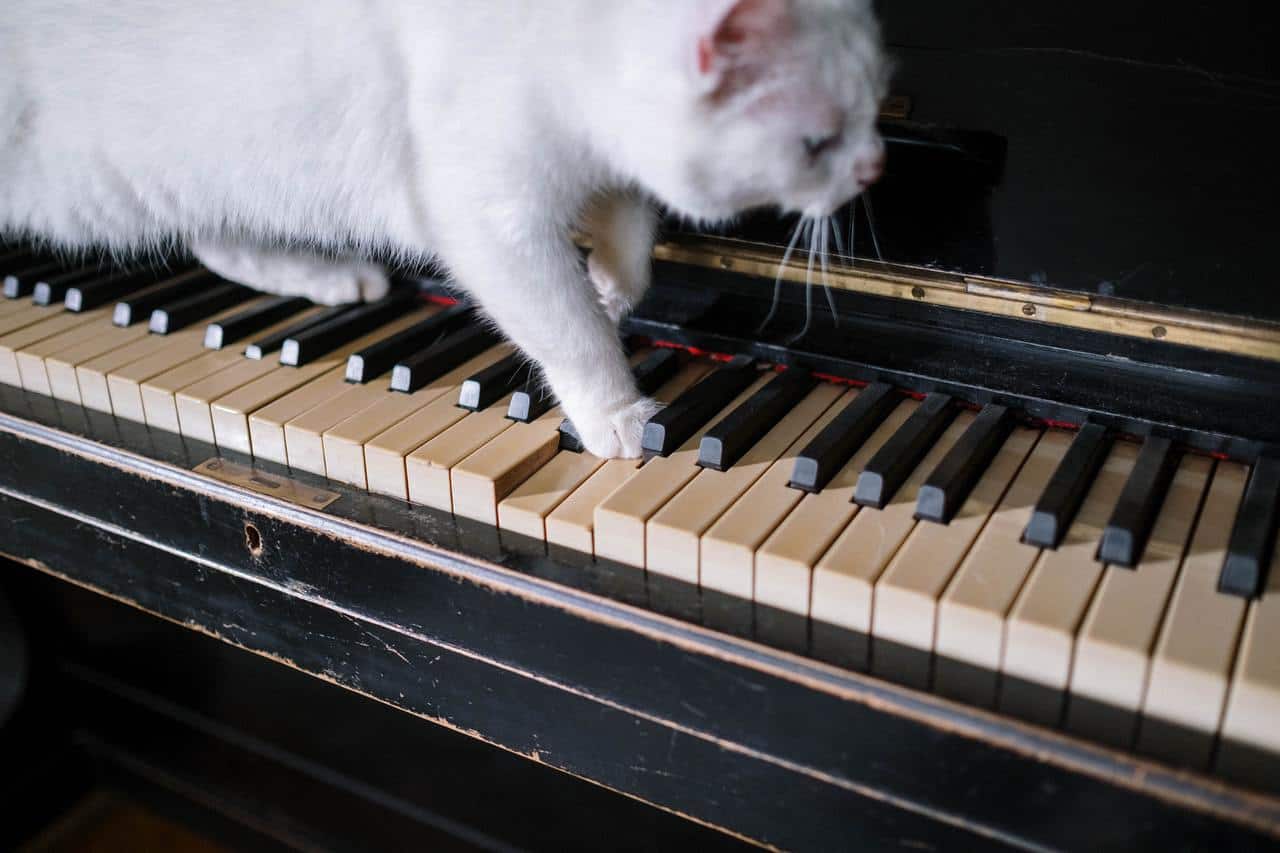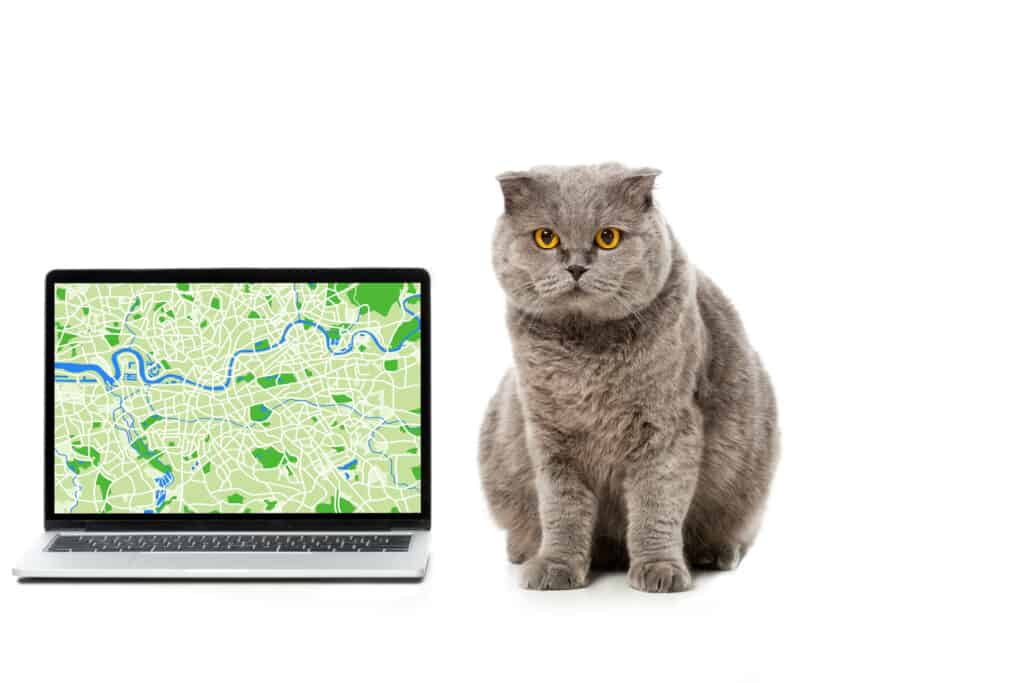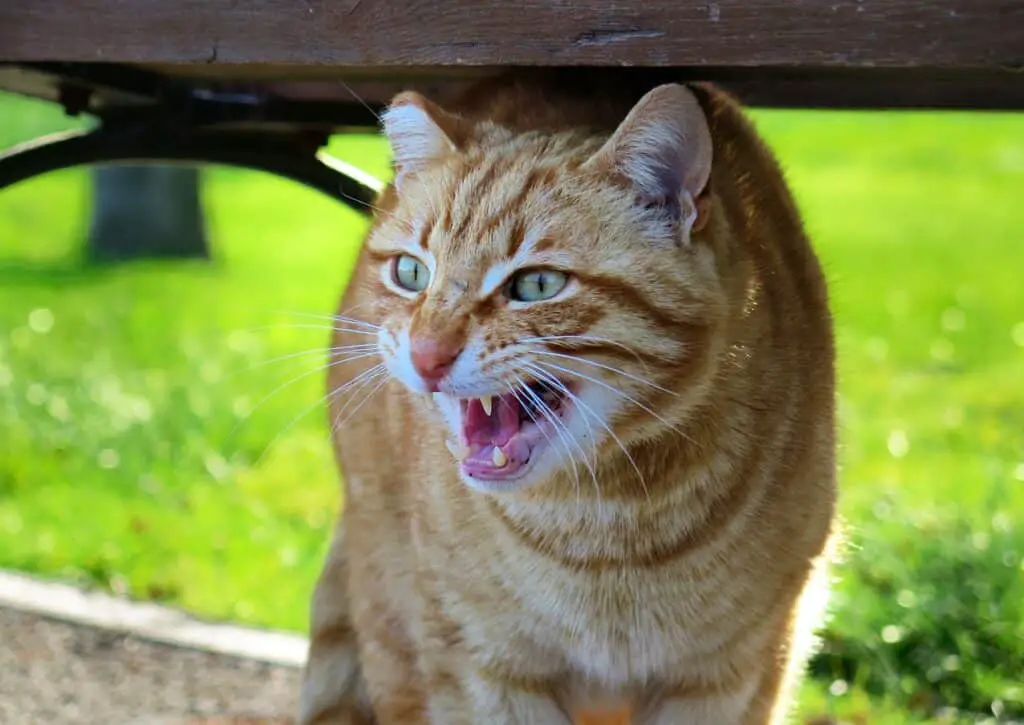Whether you’re a good singer or not, the chances are that you sing with your cat as the audience. Likely, your cat doesn’t enjoy your performance. Does that mean you’re a bad singer? Probably not. Cats generally do not enjoy human singing. But why is that?
Cats don’t like human singing because they experience sound differently than us. Their hearing is very sensitive to the volume of the sound and the pitch, making our songs less enjoyable for them. Additionally, cats may understand when we talk to them but they don’t understand the act of singing; they might be startled by it or think something is wrong.
Why cats don’t like our singing – My experience
65% of pet owners sing and dance before their pets, according to the American Animal Hospital Association’s Ninth Annual Pet Owner Survey.
From my own experience, I can tell you that although I think my singing isn’t that poor, I always get an annoyed look from my cat, Max, as soon as I start to sing.
The first thing that happens when I start my singing is that Max turns his ears towards me as if he’s listening to understand why I’m making noise. As if he’s listening for some familiar words to understand what it is that I want.
After a few seconds, though, this initial interest turns into an annoyed look, and a little later, he gets up and walks away.
My cat’s response makes it very clear that, while there are several reasons why cats don’t enjoy our singing, it comes down to two basic reasons;
- The sound annoys them because they simply don’t like our kind of music
- The sound that our singing makes serves no purpose
Let’s dive into that a bit deeper.
Cats don’t enjoy our types of music
Most of us know that cats are extremely sensitive to sound. They cannot only pick up on the faintest sounds, but they also have a much larger hearing range than humans.
So, the music that we find soothing to our ears may be damaging to theirs.
Pitch
While humans can hear sounds roughly between 20Hz and 20,000Hz, ranging from the lowest tone sound to the highest beeps, a cat can hear sounds up to about 60,000Hz. This means that cats hear much higher-pitched sounds than we can.
When translating that to a cat’s perspective and its range of hearing, to them, our music sounds like mainly it has mainly low notes. Because of this, it sounds very “muddy” to them.
If we were to pick a type of music that cats would prefer over anything else, it’s probably classical music because this genre generally plays in the higher end of the sound spectrum than other genres.
For this reason, cats generally like the singing of birds much more than they like human singing; because the sound of birds is very high-pitched and therefore more enjoyable to them.
Volume
Because cats have such a good sense of hearing, they generally do not enjoy loud sounds. Apart from music, you may have noticed that your cat will stay away if you’re doing anything noisy such as vacuuming, drying your hair with a blow dryer or when having a group of friends over. They don’t enjoy the noise.
Singing or playing music falls into the same category. It’s the volume of music; it’s loud and noisy. Cat’s don’t like it and stay away. When playing softer songs, most cats will be okay with our music.

Cats don’t understand the purpose of our singing
Cats are pretty ‘quiet’ animals and rarely communicate using sound among themselves. They use meows to attract people’s attention when they need something, greet us, or when something’s wrong.
For cats, making sound has a purpose. They use it to communicate with us.
Now imagine that you suddenly burst out in a song while your cat is peacefully sitting beside you. It’s not hard to imagine that this will startle your cat.
Not understanding what the purpose of your singing is, your cat will not understand why you are making these sounds and will get confused or even annoyed. It’s not rare to see cats swatting at their singing owners or starting a loud meowing concert themselves.
How to sing to your cat?
All this doesn’t mean that cat owners can not ever sing while their furry companions are around. Cats are not music adverse also. Just being considerate of how they might perceive your singing is already a great step forward.
There are several things you can do to make your song enjoyable for both you and your cat.
- Select the right type of song – Don’t sing along with loud, scary, and heavy music. This will surely frighten your cat. Instead, choose light and happy music like Christmas carols, hymns, or general ‘easy listening’ music. Cats are sensitive to our tone of voice; try to sing in a higher-than-usual voice to appeal to the cat’s preference for high tones.
- Limit your volume – As we’ve established, cats are wary of loud sounds so, just lowering the volume of your music and your voice when singing will help your cat to tolerate it.
- Mix in words they know – Cats are very attentive to us when we’re around and listen to the words we speak. When mixing words that your cat is familiar with into your song, such as their name, it sounds like you’re actually speaking to them. This makes it more purposeful for your cat.
- Limit your singing time – While we don’t want to destroy your musical career, try to limit the time that you sing around your cat. While they may tolerate it for a while, the fact is that cats don’t really like singing. When all you do is sing when they’re around, your feline friend will probably start to avoid you, which could put a strain on your relationship with her.
What music do cats like?
All of this does not mean that cats dislike all music. Cats just don’t like human music.
According to a study published in the journal Applied Animal Behavior Science, it has to be species-specific music for our feline friends to enjoy music.
This is achieved by making the music fit with how cats would communicate and include sounds that they are familiar with or that we know are enjoyable to them.
Musician David Teie has composed several songs that fit those parameters and tested 47 different domestic cats. While this music may sound quite monotone and boring to our human eyes, the cats really enjoyed it.
Teie’s work resulted in the tracks “Cozmo’s Air,” “Spook’s Ditty,” and “Rusty’s Ballad.” This is the perfect cat music, and while it misses the cadence and structure we would like in our music, cats seem to really enjoy it.
Related questions
Do cats like their owner’s voice?
Cats may respond to anyone calling their name; however, they recognize their owner’s voice(s) and will be more responsive to those they know and have a relationship with. This is especially true for cats that have known their owners for many years.
Do cats like classical music?
As a general rule, cats are not fond of human music because they perceive sound differently than humans. However, classical music would likely be their favorite due to the high-pitched sounds of several instruments and the generally slower cadence this genre of music has.
Do cats like rap music?
It is unlikely that cats developed a liking for rap music. To their ears, it will sound aggressive, and there is very little dynamic in the music. Cats generally respond better to music with high-pitched sounds. With rap music being centered around vocals, it may not sound interesting to cats.
Do cats care about music?
Cats do not care for music in the same way humans do, and they would lead perfectly happy lives without music. However, studies have shown that when composing cat music that is specifically aimed towards their sensitive hearing, cats do tend to enjoy listening to it.




